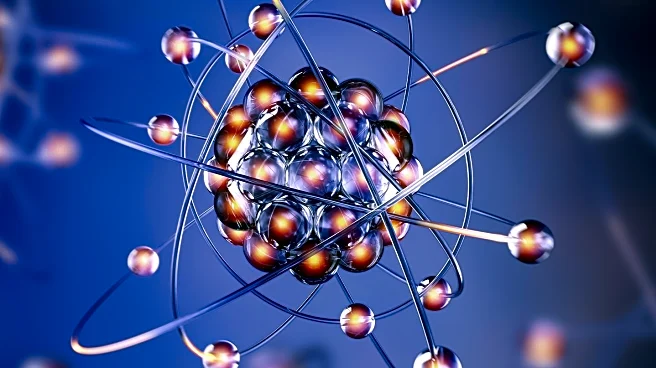What is the story about?
What's Happening?
Recent studies have clarified the inhibitory mechanisms of the receptor LAG3 in TCR signaling, which is crucial for T cell activation. LAG3 interferes with the CD3ε–LCK interaction, dampening T cell responses. This has implications for therapeutic applications in cancer and autoimmunity. LAG3 is expressed on activated T cells and upon binding to MHC class II, it suppresses T cell activation. The studies highlight LAG3's potential in immune checkpoint therapy for cancer and its role in inhibiting autoreactive T cells in autoimmune diseases.
Why It's Important?
Understanding LAG3's inhibitory mechanisms is vital for developing therapies targeting immune checkpoints in cancer treatment. LAG3's role in suppressing T cell activation can enhance immune responses against tumors when blocked, offering a promising approach in cancer immunotherapy. Additionally, activating LAG3 could help manage autoimmune diseases by inhibiting pathogenic T cells, potentially reducing tissue damage caused by autoimmunity.
Beyond the Headlines
The studies suggest that LAG3's inhibitory function involves ubiquitination of its cytoplasmic tail, which exposes motifs that interfere with TCR signaling. This mechanism could be leveraged to design therapies that modulate T cell responses. The research also indicates potential for using LAG3 expression as a prognostic factor in cancer treatment, helping identify patients likely to benefit from LAG3 blockade therapy.















